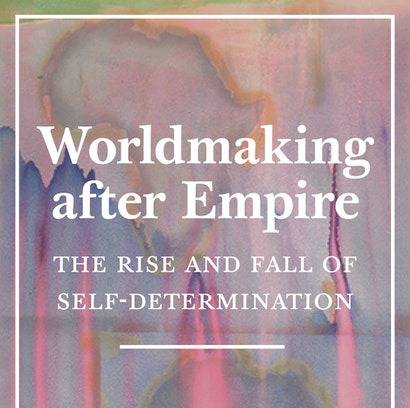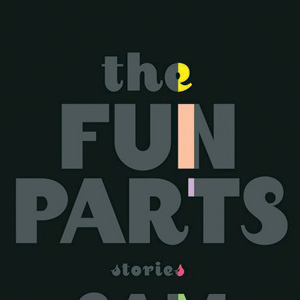For Tzvetan Todorov, humanism consists in a commitment to believing that individual liberty, personal love, and a sense of belonging to a moral community, can bring mankind happiness (even if only 'fragile and fleeting') and – more importantly – the opportunity to live in truth. Moreover, it can do this without the need of gods or Providence. His book is a sustained defence of this commitment against the charge that what it involves carries an excessively high price, namely, the destruction of all values and relationships, and ultimately of the self. Todorov dramatises these claims as a devil's pact, after the fashion of Faust. The devil offered Modern Man free will, which means the power to choose how to live. But he hid from Man the triple cost of this gift, which was that it would separate him from God, from his fellow man, and finally from himself. God will vanish because there will no longer be reason to believe that there exists a being superior to man, and therefore man "will have no more ideals or values – will be a 'materialist'."
Fellowship will go because other people will no longer matter, and every individual's circle of concern will shrink from community to family and in the end to his own self. Finally, the individual's self will go too, because once separated from his community an individual will be nothing but a collection of impulses, "an infinite dispersal", alienated and inauthentic.
The point of Todorov's book is to show that humanism does not have to purchase the freedom it takes as its fundamental premise – the freedom of the will – by forfeiting common values or social relations, nor by sacrificing the integrity of selfhood. He does this by looking at the statement of the humanist case in its inception, in the full vigour of its originators' thought, which in his view occurred in the period from the sixteenth to the nineteenth centuries, with Montaigne, Descartes, Montesquieu, Rousseau, Constant and Tocqueville in its vanguard.
Through discussion of these writers Todorov formulates his own conclusions. These are that humanism involves three principal theses: recognition of the equal dignity of everyone, altruism (the "elevation of the particular human being other than me as the ultimate goal of my action"), and the preference for freedom of action. These are irreducible values, he says, in the sense that they cannot be explained in terms of each other; they may even conflict at times. But what creates humanism is their interaction, principally through the way they constrain one another: my freedom cannot be enjoyed at the expense of your freedom or dignity; my autonomy is limited by considerations of the equality and fraternity of all in the community to which I belong. Citizens might be interchangeable as members of society, but as individuals they are irreducible; it is their differences that matter, not their equality; and the relations between them turn on preferences and love.
Todorov describes the human domain as an 'imperfect garden' because his humanism is practical, realistic, even a little world-weary. Humanists do not 'believe' in man or unqualifiedly sing his praises. They see his flaws, his failings, his capacity for evil. But through his freedom he is also capable of choosing the good; and it is this that saves him. The values of community and relationship are voluntary, and at their best humans premise their lives on them. In this respect humanism has natural affinities with democracy, even if it does not single out one political persuasion over another; for the humanistic impulse towards community and fraternity reveals that its basis is the belief that others, far from being hell, are our escape from hell – which, although it does not make the human realm heaven, at least makes it fully man's own.
There is much in these views, and their presentation, to admire and accept. Todorov makes an eloquent case for a sensible secular ethics without illusory ideals of the starry-eyed kind. His pragmatic, phlegmatic, experienced view of things human is positively Horatian – and for that reason recommends itself as a corrective to the enthusiasms which strain towards utopian visions of the good, visions which find proofs of mankind's large capacity for evil – for an egregious example, the Holocaust – difficult to contain and assimilate.
But although I sympathise with almost all of what Todorov says, and applaud his achievement in saying it, I have a minor cavil about the way he gets his argument going. The supposed cost exacted by the devil for man's free will is, as Todorov describes it, immediately and obviously implausible. In the end, of course, that is Todorov's point too; but he makes it seem as if there is a real problem to solve. Yes, the notion of supernatural agencies crumbles to dust when mankind attains its majority and assumes moral and intellectual responsibility for itself, because varieties of fatalism, and subordination of the self to heteronymous direction which most religions demand, evaporate.
But this happens in conjunction with views of the natural and social worlds informed by science, among them observations of the essential sociability of humankind; so that at the very outset of adopting his autonomy and individuality Modern Man recognises his needs and obligations as a social being. That is why the humanist project of the Enlightenment immediately involved debate about institutions of law and government, and practices of education and morality, of the kind required to enhance and sustain a community of freely – though mutually engaged – agents. So centrally is this fact placed in humanism that it is hard to see how opponents, suppositious or otherwise, could have failed to recognise the essentially democratic and contractarian nature of the ideal.
The real problem faced by the humanist project – which incidentally I think existed, in ways very similar in content though slightly different (because of historical factors) in form, from classical antiquity onwards – is the continued strength of antihumanistic influences. Todorov gives an illuminating overview of the alternatives to humanism in his concluding chapter, and alludes to the difficulty they pose to the humanist case. But what counts even more is understanding the fundamental differences between the premises involved, for it is they that give rise to the struggle, in the past (and still in the present) frequently dangerous and bloody, that Modern Man continues to face; for his freedom from old ghosts is not complete, and the liberty, love and community, which Todorov so eloquently describes, remain prone to blight while that is so.
Imperfect Garden is available from Amazon (UK)

